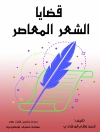The complex nexus between masculinity and national identity has long troubled, but also fascinated the German cultural imagination. This has become apparent again
since
the fall of the Iron Curtain and the turn of the millennium
when transnational developments have noticeably shaped Germany’s
self-perception as a nation
. This book examines the social and political impact of transnationalism with reference to
current discourses of masculinity
in novels by five contemporary male German-language authors. Specifically, it analyses how conceptions of the masculine interact with those of nationality,
ethnicity, and otherness in the selected texts and
assesses the new masculinities that result from those interactions. Exploring how local discourses of masculinity become part of transnational contexts in contemporary writing, the book moves a consideration of masculinities from a ‘native’ into a transnational sphere.
Tabela de Conteúdo
1 Introduction: Contesting Masculinity in Contemporary German Literature.- 2 Men without Women: Clemens Meyer.- 3 Masculinity in Conflict: Maxim Biller.- 4 Masculinity and Religion: Navid Kermani.- 5 Masculinity across Borders: Feridun Zaimoglu.- 6 Men in Crisis: Ilija Trojanow.- 7 Conclusion: Towards ‘New’ Masculinities in Contemporary German Literature.
Sobre o autor
Frauke Matthes is Senior Lecturer in German at the University of Edinburgh, UK. She is the author and co-editor of several books and articles on contemporary German-language writing, masculinities in literature, and transnational and world literature.












